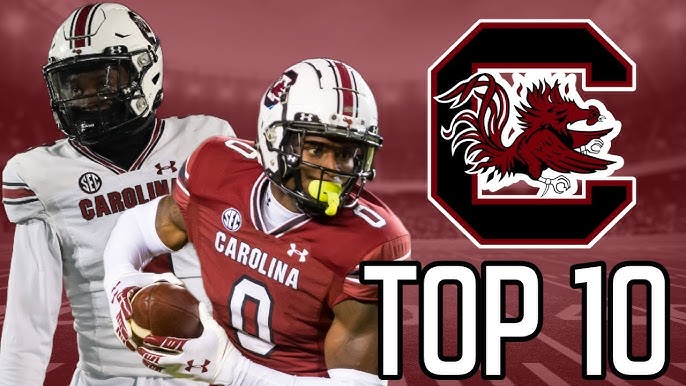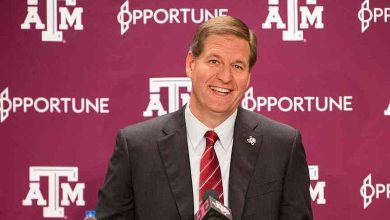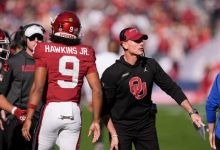The SEC quarterback competition intensifies as South Carolina secures a commitment from 4-star recruit Landon Duckworth amidst a highly competitive recruiting process.

The Southeastern Conference (SEC) has long been heralded as the pinnacle of college football, renowned for its competitive teams, elite athletes, and, notably, its quarterback talent. The quarterback position often serves as the focal point of team success, and recruiting for this critical role has become increasingly intense, with programs vying fiercely to land top-tier prospects. Recently, South Carolina made a significant splash by securing a commitment from 4-star quarterback Landon Duckworth, a move that not only bolsters their roster but also intensifies the ongoing SEC quarterback recruitment battle. This development is a testament to the shifting landscape of college football recruiting, the strategic importance of signal-callers, and the future ambitions of the Gamecocks.
The Significance of the SEC Quarterback Race
The SEC has historically produced some of the most impactful quarterbacks in college football, many of whom have gone on to successful NFL careers. From Peyton Manning and Eli Manning to Joe Burrow, Tua Tagovailoa, and Alabama’s recent prodigies, the conference has been a breeding ground for elite quarterbacks. Consequently, recruiting top-tier signal-callers has become a strategic priority for SEC programs, often determining their national competitiveness and postseason aspirations.
In recent years, the SEC quarterback race has become even more competitive, with programs investing heavily in recruiting and development. The league’s reputation as a quarterback factory has elevated the stakes, leading to highly contested recruitment battles that often involve high-profile recruits, multiple offers, and intense coaching pitches. Landing a top-tier quarterback can transform a program’s trajectory, providing stability, leadership, and the ability to adapt strategically against formidable defenses.
South Carolina’s Evolving Strategy and Recent Developments
Historically, South Carolina has experienced periods of quarterback stability and instability, with some seasons featuring standout play from signal-callers like Connor Shaw and Jake Bentley, while others struggled with inconsistency. Under current head coach Shane Beamer, the program has emphasized building a cohesive, competitive team that can challenge the SEC’s upper echelon. A critical component of this strategy is landing a dynamic quarterback who can lead the offense, extend plays, and execute a versatile offensive scheme.
The commitment of Landon Duckworth signifies a strategic shift for South Carolina—aiming to secure a talented, young quarterback who can develop into a cornerstone piece. Duckworth’s recruitment journey underscores the competitive nature of SEC quarterback recruiting, with multiple programs vying for his services, each offering a different vision for his future role.
Profiling Landon Duckworth: The Player and His Potential
Landon Duckworth, a 6-foot-4, 210-pound quarterback from [Insert Hometown], has garnered attention for his impressive blend of physical tools, football IQ, and leadership qualities. As a 4-star recruit, he is ranked among the top quarterbacks nationally, with notable skills including a strong arm, mobility, and accuracy. His ability to extend plays under pressure and make throws on the run makes him an attractive prospect for SEC programs seeking a dual-threat quarterback.
What sets Duckworth apart is his high football IQ—he demonstrates excellent decision-making, pre-snap recognition, and the ability to read defenses effectively. His leadership qualities are also evident, showing maturity beyond his years, which is vital for a quarterback expected to lead an SEC offense. His high school tape showcases a poised pocket presence, a quick release, and an ability to make all the throws necessary at the college level.
Beyond physical tools, Duckworth’s intangibles—work ethic, competitiveness, and coachability—have endeared him to recruiting staffs. His commitment to South Carolina reflects a belief in their coaching staff’s development plan, as well as confidence in the program’s trajectory.
The Recruiting Battle: Who Were the Contenders?
Landing Duckworth was no small feat, as multiple programs recognized his potential and offered him scholarships. Key competitors included:
South Carolina: Under Shane Beamer, the Gamecocks prioritized finding a long-term quarterback solution capable of elevating the offense. Duckworth’s skill set aligns with their offensive philosophy, emphasizing versatility and leadership.
Other SEC Programs: Several SEC schools, including [Insert Key Competitors], also targeted Duckworth, seeing him as a potential future star. These programs offered early playing opportunities, exposure, and development pathways.
Power Five and National Programs Outside the SEC: While the focus remains on SEC schools, Duckworth also drew interest from prominent non-conference programs, highlighting his national appeal.
The competition was fierce, involving extensive visits, virtual meetings, and personalized coaching pitches. South Carolina’s ability to secure Duckworth’s commitment indicates a well-executed recruiting strategy, effective relationship-building, and confidence in their developmental plan.
The Strategic Importance of Duckworth’s Commitment for South Carolina
Securing a 4-star quarterback like Duckworth is a landmark achievement for South Carolina for several reasons:
Signal of Ambition: It demonstrates the program’s intent to compete at a higher level within the SEC, emphasizing the importance of quarterback talent in achieving team goals.
Long-Term Planning: Duckworth’s projected development timeline aligns with South Carolina’s broader roster-building strategy, allowing him to grow into a leadership role over the coming years.
Recruitment Magnet: Landing a highly-rated quarterback can serve as a recruiting magnet, attracting other talented players who want to compete alongside or follow in Duckworth’s footsteps.
Offensive Scheme Flexibility: Duckworth’s dual-threat ability provides offensive coordinators with more tactical options, enabling more creative play-calling and adaptability based on game situations.
The Broader SEC Quarterback Landscape
Duckworth’s commitment adds a new layer to the ongoing SEC quarterback race, which features several other prominent prospects and established starters:
Returning Starters: Teams like Georgia, Alabama, LSU, and Florida boast experienced quarterbacks who have proven their mettle in the SEC. Their performances set a high bar for incoming recruits.
Top Recruits in the Class: Duckworth joins a talented cohort of quarterbacks nationally, many of whom have SEC offers or are in the conversation for starting roles.
Development Pipelines: The SEC’s reputation for developing quarterbacks means that prospects like Duckworth are viewed not just as incoming freshmen but as future stars who can impact the league’s landscape for years to come.
Transfer Portal and Competition: The transfer portal has further intensified the quarterback race, with programs adding experienced transfers to bolster their depth and competition.
The Future Outlook: Impact and Expectations
South Carolina’s addition of Duckworth to their roster is more than just a recruiting win; it’s a statement of intent. Moving forward, several factors will determine how significant his impact becomes:
Development Path: With proper coaching and game experience, Duckworth could develop into a starter within the next two seasons, providing stability and consistency.
Offensive Scheme Fit: The coaching staff’s ability to tailor their offensive system to his skill set will be crucial. A flexible scheme that leverages his mobility and arm talent will maximize his potential.
Team Dynamics: The overall talent level of the roster, particularly at skill positions and offensive line, will influence how effectively Duckworth can succeed early in his college career.
SEC Competition: Facing some of the best defenses in college football will test Duckworth’s growth and resilience. His performance against top-tier defenses will be a key indicator of his development.
Long-Term Impact: If Duckworth fulfills his potential, he could become a cornerstone for South Carolina’s aspirations of SEC dominance and national relevance, potentially attracting NFL attention down the line.
Challenges and Considerations
While landing Duckworth is a major victory, several challenges remain:
Adjusting to SEC Level: Transitioning from high school to college football, especially in the SEC, requires adaptation. Speed, complexity, and physicality are significantly increased.
Competition for Playing Time: South Carolina’s current quarterback situation, including existing depth charts and incoming talent, will influence when Duckworth sees the field.
Injury and Developmental Risks: As with all young quarterbacks, injuries or slow development could delay his rise or alter expectations.
Pressure and Expectations: Being a highly-rated recruit comes with scrutiny. Managing expectations and fostering growth will be critical for his success.
The Broader Significance for SEC and College Football
Duckworth’s commitment exemplifies the shifting landscape of college football recruiting, where programs are increasingly investing in top-tier talent at the quarterback position to secure competitive advantage. South Carolina’s success in landing such a prospect underscores the importance of strategic recruiting, coaching development, and long-term planning.
Furthermore, it signals a broader trend of SEC programs elevating their recruiting efforts, targeting high-level prospects early, and emphasizing player development pipelines. The league’s reputation as a quarterback factory continues to attract elite talent, fueling intense competition both within the conference and nationally.
South Carolina’s recent commitment of 4-star quarterback Landon Duckworth marks a significant milestone in the ongoing SEC quarterback recruitment race. It reflects the program’s ambition to elevate its competitiveness, build for the future, and compete at the highest levels of college football. As Duckworth develops and adapts to the demands of SEC play, his journey will be closely watched by fans, analysts, and rival programs alike. With the right coaching, support, and development, Duckworth could become a pivotal figure in South Carolina’s quest for SEC success, while his recruitment underscores the fierce, strategic nature of quarterback battles that define the league’s landscape. This move not only strengthens the Gamecocks’ roster but also adds another compelling chapter to the SEC’s storied quarterback rivalry, signaling that the race for elite signal-callers remains as intense and consequential as ever.









